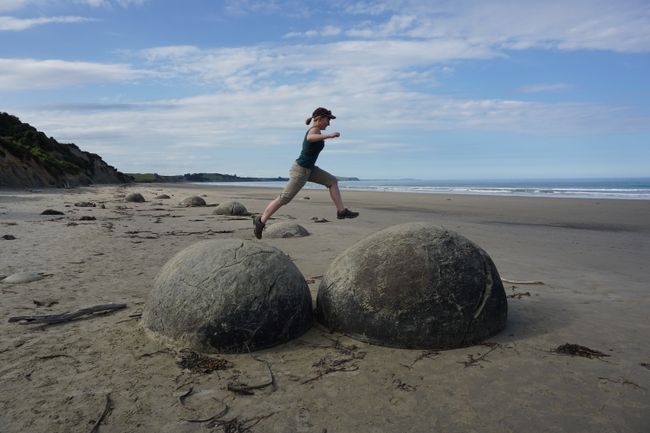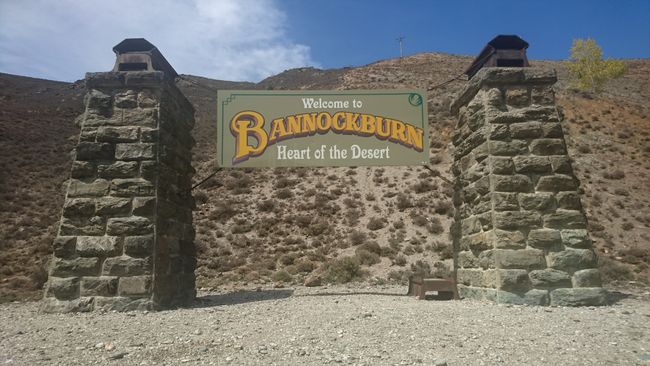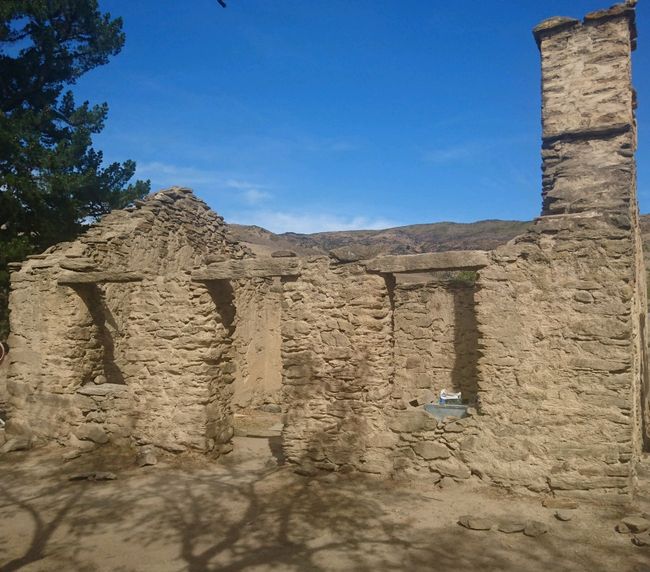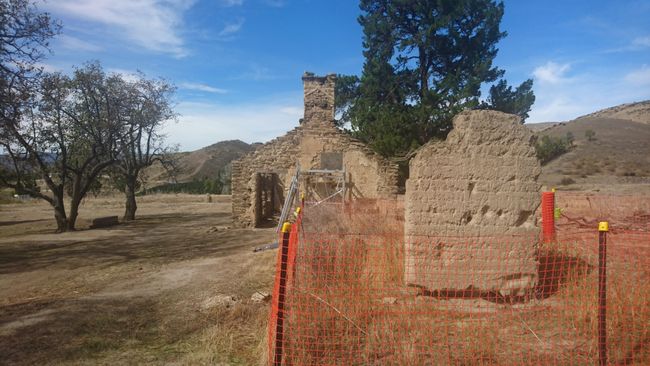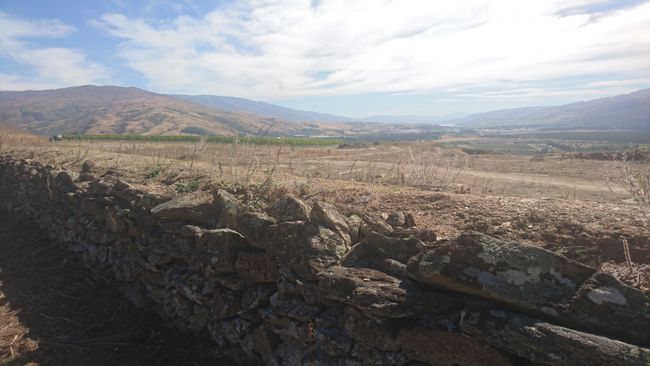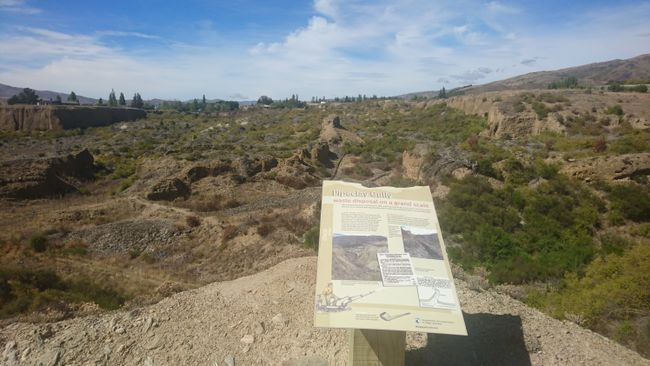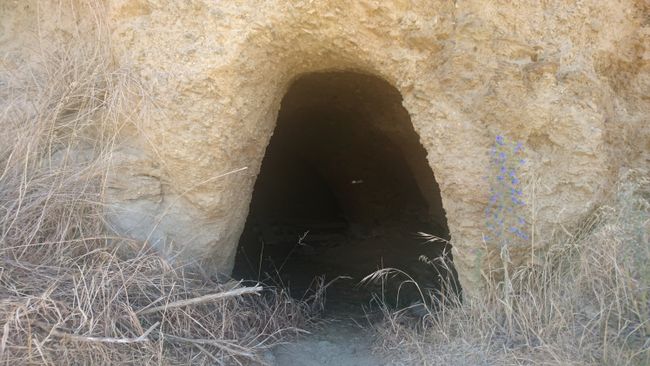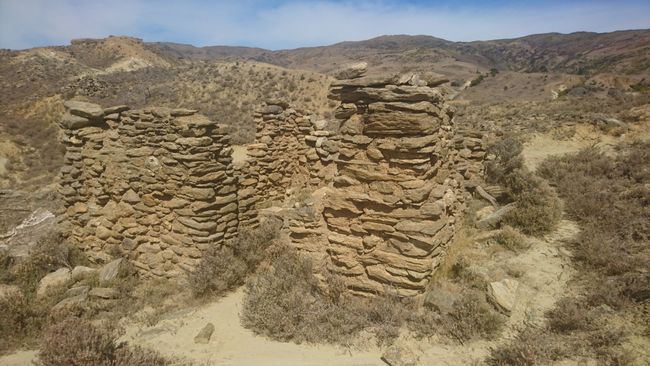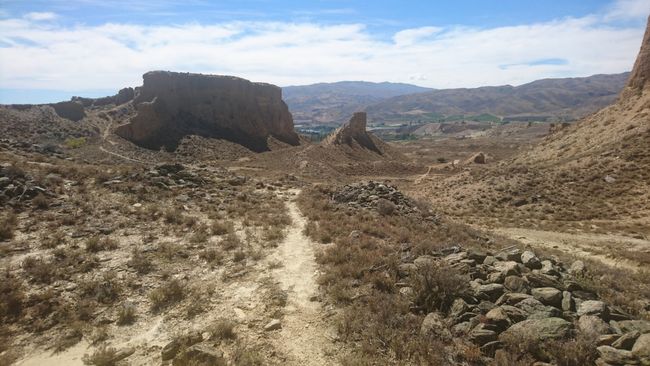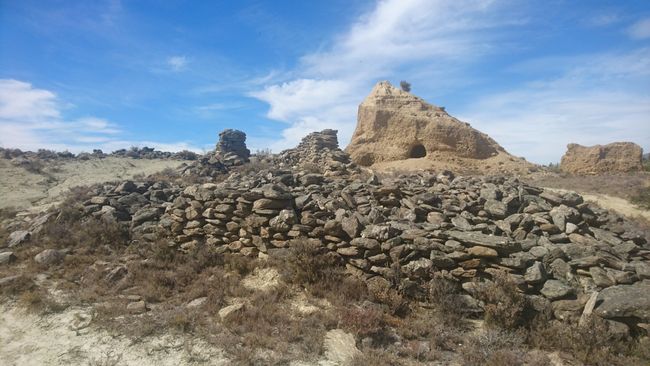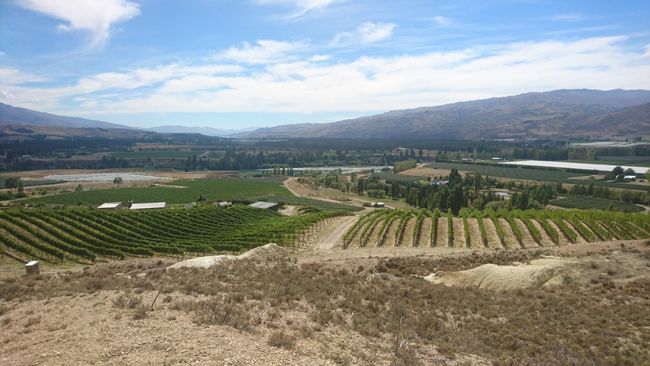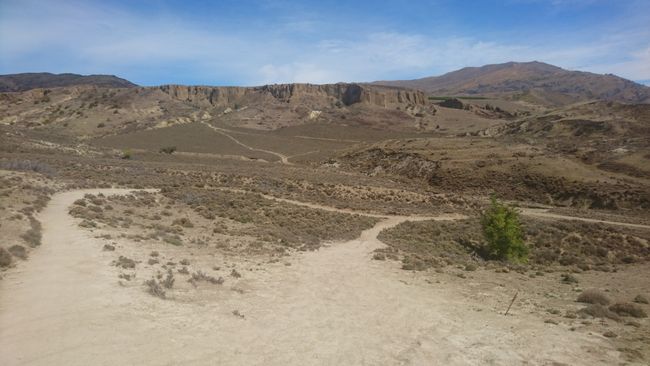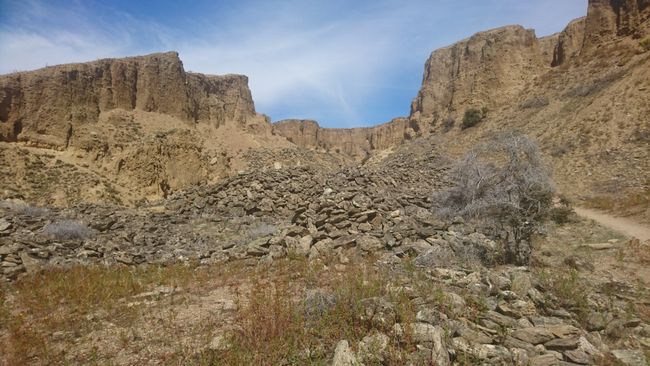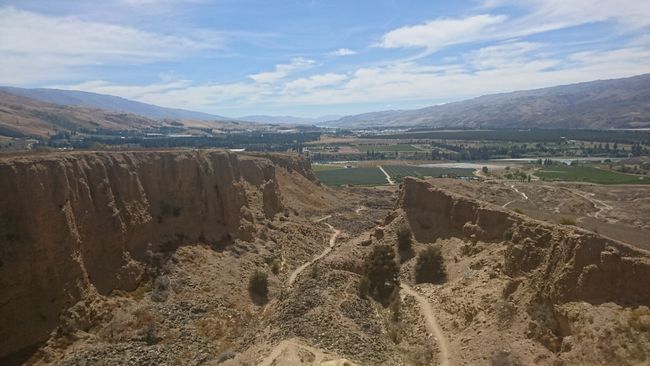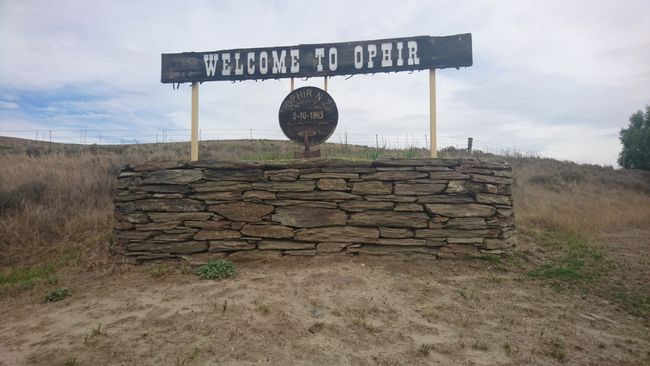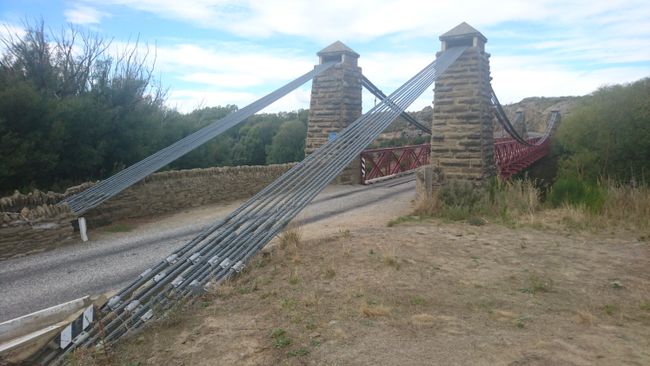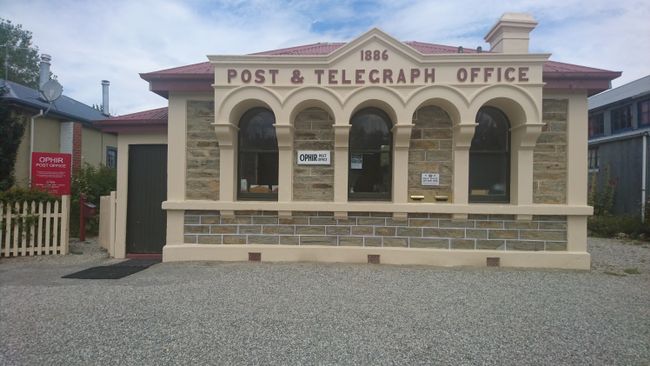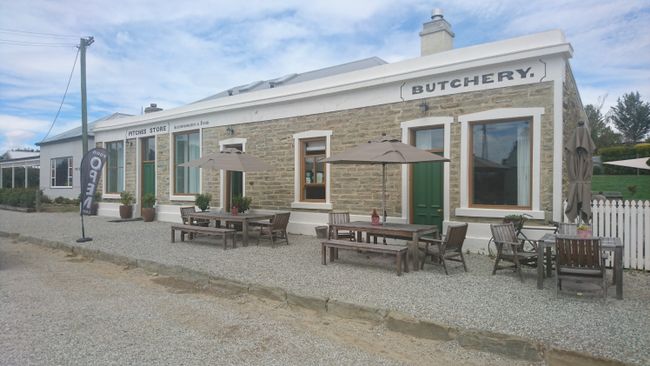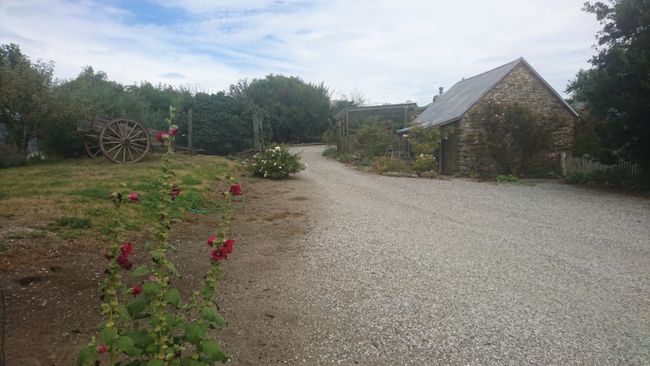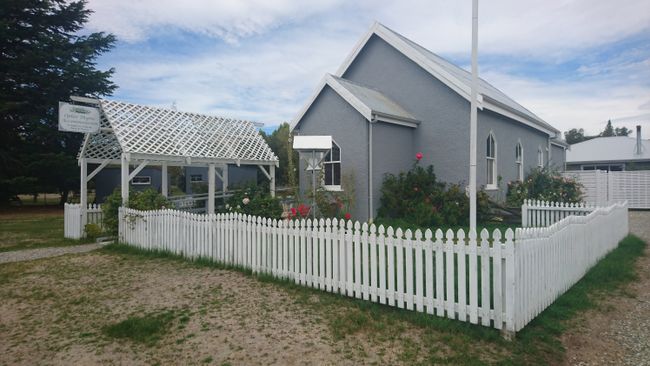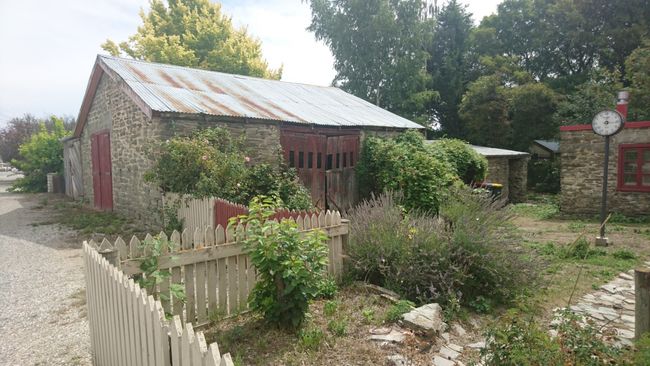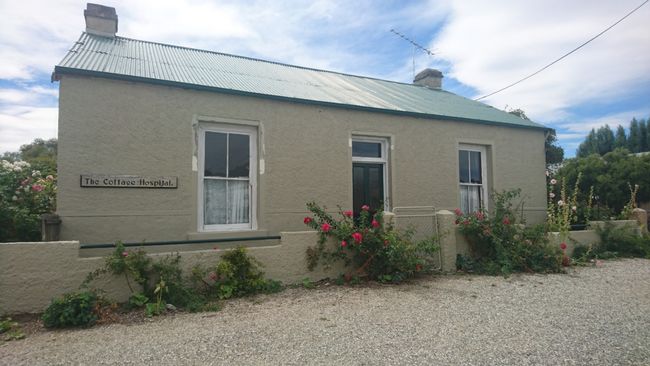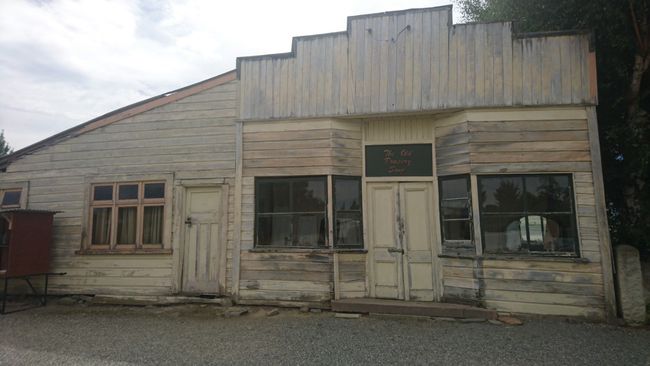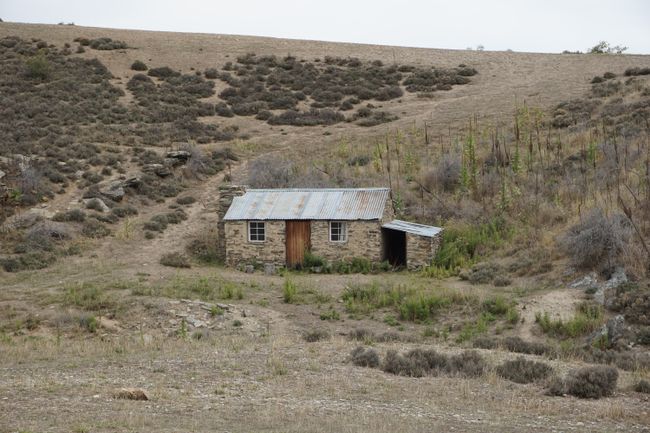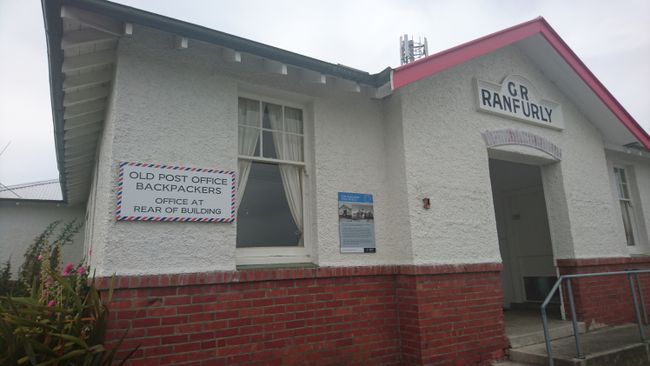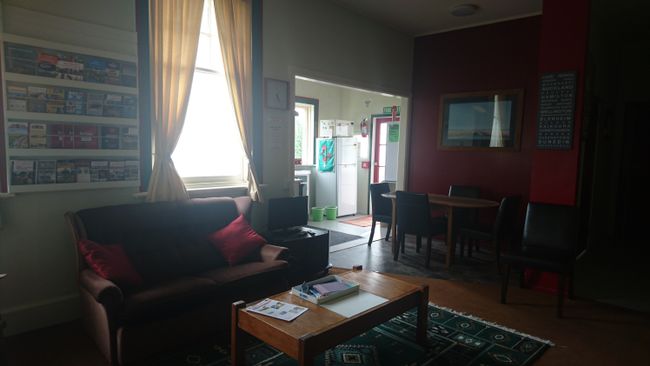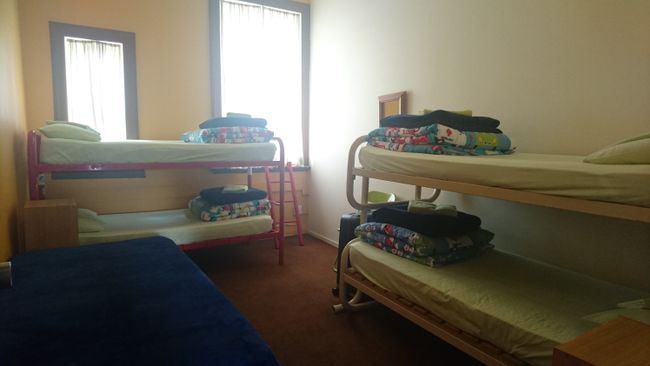9.2.2018: History lesson in Otago District
প্ৰকাশিত: 10.02.2018
নিউজলেটাৰ চাবস্ক্ৰাইব কৰক
When I wake up, it suddenly dawns on me. It's great that I chose the route via Cardrona to drive to Wanaka and took photos of the hotel yesterday, but I completely forgot the actual reason why Cardrona made it onto the list. For almost 10 years, there has been the controversial Bra Fence here, which is a fence covered with hundreds of bras. On any other day, my note 'Cardrona' would immediately remind me of what it means, and on THIS day, I only associate it with an unknown route and the Cardrona Hotel. Where did I leave my head?! The bras used to line a fence right on the highway, but due to the distraction it caused to drivers, it was relocated to a side street in 2006. If I hadn't hit my head hard on the only half-opened trunk door in Queenstown yesterday, which still hurts today, I would have loved to slap my forehead with my phone. But unfortunately, a fence covered with bras does not justify the nearly 30 km detour (one way mind you) to correct my mistake. Damn, how annoying.
It's 70 km from Lake Hawea to Stewart Town, a former gold mining settlement (yes, New Zealand has plenty of them). The air conditioning is running at full blast as I pass the very fitting sign 'Welcome to Bannockburn - the heart of the desert'. From the parking lot, a 3.5 km loop leads past the remains of Stewart Town, consisting of dams, tunnels, stone and mud house walls, water sluices, and even various fruit trees. The barren landscape and the cracked, dry ground actually resemble the precursors of a desert. The weather matches as well. The only lush green represents the vineyards, the new 'gold' of the region, from which you can see all the way to Cromwell and Lake Dunstan. The tall rock walls through which the track winds bear witness to the enormous changes in the landscape. The mountain ridges used to be the original surface of the earth; however, they were excavated by hand in search of gold. Conclusion of the walk: If you haven't seen Stewart Town, you're not missing out on much. It's more of a destination for locals or long-term tourists like me.
Before I continue, I need to find accommodation first. Based on an overly positive Google review, I choose Ranfurly. The town benefits from the cyclists who are on the Otago Rail Trail. Otherwise, few tourists make the detour inland. Ranfurly is simply too far away from the main route along the coast. All the better for me.
After a quick refueling stop in Cromwell, I continue to Ophir, which can be compared to St. Bathans. Once home to 1,000 people, various shops, hotels, banks, churches, a hospital, a police station, and a school, only 50 people call it their home today. Additionally, the historically significant place is home to New Zealand's oldest post office. Many of the old photogenic stone and mud brick buildings, such as the church, are now privately owned and therefore cannot be visited, while others are rented out as accommodation. The new owners have combined original features with modern touches and, for example, added a conservatory, but left the old barn unchanged. It takes me an hour to walk up and down the main street.
Since I have to check in at the hostel in Ranfurly by 6:00 PM because the owners are going out tonight and I don't want to rush, I postpone my visit to Naseby until tomorrow morning and drive the almost 60 km from Ophir without stopping. The hostel is located in an old post office building, it's spotlessly clean, spacious, well-equipped, and I have it all to myself. It's a bit lonely in the evenings, but I can use the bathroom and kitchen without any restrictions and don't have to share the WiFi or power outlet. If my return flight wasn't in a few days, I would have booked it for two nights - what a shame.
নিউজলেটাৰ চাবস্ক্ৰাইব কৰক
উত্তৰ

ভ্ৰমণৰ প্ৰতিবেদন নিউজিলেণ্ড

